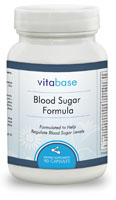| |
Bitter melon |
|
|
Bitter melon, also known as the balsam pear or bitter gourd, is a long fruit resembling a cucumber with bumpy skin. Bitter melon is not a melon at all, but a cucumber-like vegetable. The bitter melon grows in tropical and subtropical climates. The fruit is green (orange-yellow when ripe) and has warty appearance and oblong shape. Bitter melon has yellow flowers and orange, warty fruits that open at maturity to expose red-coated seeds. It is quite popular in Chinese cooking where the fruit is often braised, stir fried or steamed and is added to a dish consisting of pork, onions, ginger, and black bean sauce. All parts of the plant, the seeds, leaves and vines, are used for medicinal purposes, but the actual fruit of the bitter melon is most commonly used. Bitter melon fruit has been used traditionally in China as a folk remedy for diabetes and other ailments. Bitter melon is also used to treat cancer, human immunodeficiency virus (HIV) infection, stomach problems, and to increase appetite (appetite stimulant). Other names for bitter melon include balsam pear, African cucumber, bitter apple, karla, wild cucumber, margose, and momordica charantia. |
| |
Medicinal uses and health benefits of bitter melon |
|
| Bitter melon is the source material for the isolation of the MAP 30 protein. MAP30 is effective against tumors, AIDS, and other viruses. MAP30 found in bitter melon can also be used by patients with herpes. MAP30 inhibited the reproduction of the virus, as well as reducing its ability to form plaques (patches of irritated skin). Bitter melon is reported to help in the treatment of diabetes. Bitter melon contains compounds that significantly lower the body's blood sugar level. These include a mixture of steroidal saponins known as charantin, insulin-like peptides, and alkaloids. Bitter melon inhibits the activity of guanylate cyclase, an enzyme that is involved in psoriasis. In traditional Chinese medicine, bitter melon is used to treat dry coughs, bronchitis, and throat problems. The seeds are used topically for skin swellings caused by sprains and fractures, and for sores that are slow to heal. |
| |
Side effects, precautions, interactions of bitter melon |
|
| Bitter melon is considered safe when used properly. Overdosage of bitter melon juice can cause abdominal pain and diarrhea. Excessive ingestion of the seeds had been associated with headache, fever, and coma. Bitter melon can increase the effects of diabete drugs (prescription medications as chlorpropamine, glyburide, or phenformin, as well as insulin) and lead to severe hypoglycemia. People with hypoglycemia should not take bitter melon, because it may trigger or worsen the problem. Bitter melon may have additive effects when taken with other glucose-lowering agents. Bitter melon may have hypoglycemic effects. |
|
|
|
|
